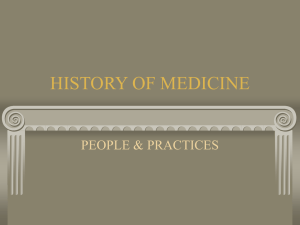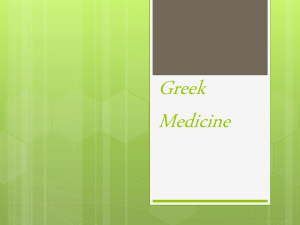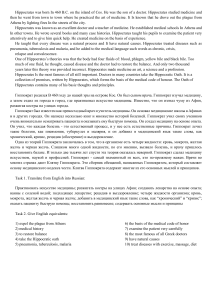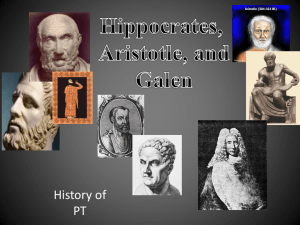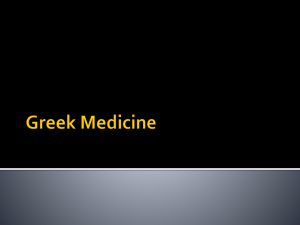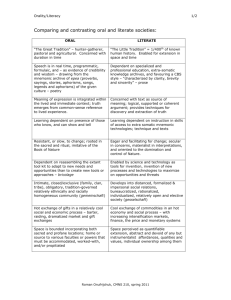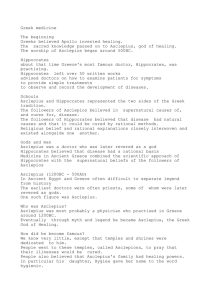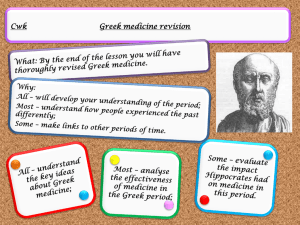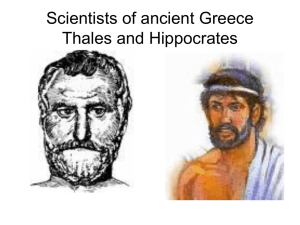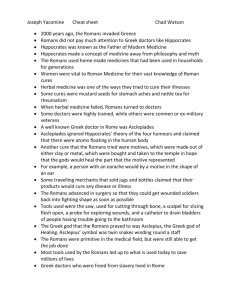Reading 17
advertisement
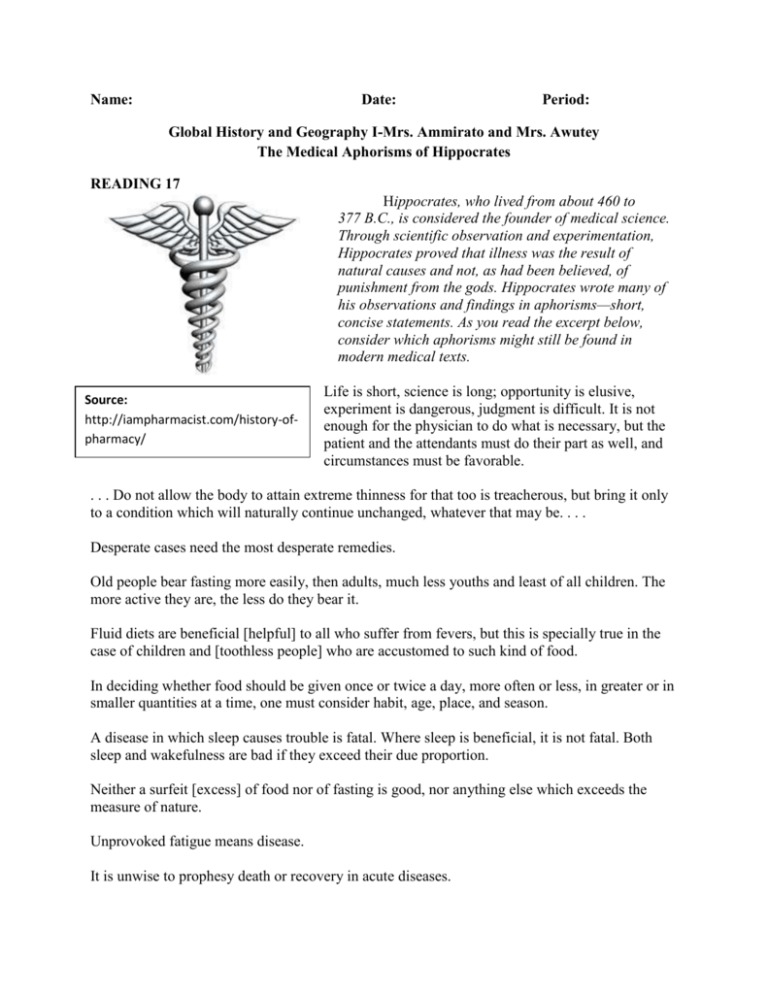
Name: Date: Period: Global History and Geography I-Mrs. Ammirato and Mrs. Awutey The Medical Aphorisms of Hippocrates READING 17 Hippocrates, who lived from about 460 to 377 B.C., is considered the founder of medical science. Through scientific observation and experimentation, Hippocrates proved that illness was the result of natural causes and not, as had been believed, of punishment from the gods. Hippocrates wrote many of his observations and findings in aphorisms—short, concise statements. As you read the excerpt below, consider which aphorisms might still be found in modern medical texts. Source: http://iampharmacist.com/history-ofpharmacy/ Life is short, science is long; opportunity is elusive, experiment is dangerous, judgment is difficult. It is not enough for the physician to do what is necessary, but the patient and the attendants must do their part as well, and circumstances must be favorable. . . . Do not allow the body to attain extreme thinness for that too is treacherous, but bring it only to a condition which will naturally continue unchanged, whatever that may be. . . . Desperate cases need the most desperate remedies. Old people bear fasting more easily, then adults, much less youths and least of all children. The more active they are, the less do they bear it. Fluid diets are beneficial [helpful] to all who suffer from fevers, but this is specially true in the case of children and [toothless people] who are accustomed to such kind of food. In deciding whether food should be given once or twice a day, more often or less, in greater or in smaller quantities at a time, one must consider habit, age, place, and season. A disease in which sleep causes trouble is fatal. Where sleep is beneficial, it is not fatal. Both sleep and wakefulness are bad if they exceed their due proportion. Neither a surfeit [excess] of food nor of fasting is good, nor anything else which exceeds the measure of nature. Unprovoked fatigue means disease. It is unwise to prophesy death or recovery in acute diseases. It is a bad thing if a patient does not put on weight when he is being fed up after an illness. In every illness, a healthy frame of mind and an eager application to [food] is good. The reverse is bad. Rest, as soon as there is pain, is a great restorative [aid to improvement] in all disturbances of the body. The changes of the seasons are especially liable to beget diseases, as are great changes from heat to cold, or cold to heat in any season. Other changes in the weather have similar severe effects. Some natures are naturally well-suited to summer and some to winter; others are ill-suited to one or the other. Every disease occurs at all seasons of the year but some of them more frequently occur and are of greater severity at certain times. . . . . . . Care must also be exercised in giving drugs to infants and children. The vomiting of blood of any kind is bad; its passage as excrement is not a good sign. What drugs will not cure, the knife will; what the knife will not cure, the cautery [a hot instrument used to burn tissue] will; what the cautery will not cure must be considered incurable. 1. According to Hippocrates, what kind of diet is good for someone suffering from a fever? ______________________________________________________________________________ ______________________________________________________________________________ 2. What does Hippocrates suggest are the best remedies to restore good health? ______________________________________________________________________________ ______________________________________________________________________________ 3. Which of the aphorisms in the excerpt might still be of use to physicians today? ______________________________________________________________________________ ______________________________________________________________________________ ______________________________________________________________________________ ______________________________________________________________________________ From “Aphorisms” from The Medical Works of Hippocrates, translated by John Chadwick and W. N. Mann. Copyright 1950 by John Chadwick and W. N. Mann.

